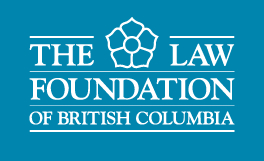This framework guides racial justice grantmaking at the Foundation.
Applications for racial justice funding will be reviewed and assessed for alignment with the framework, including the guiding principles.
Concept
The Foundation acknowledges the concept below is not the only definition or understanding of racial justice. Our intention is to offer a premise to build shared language and understanding of racial justice to guide our work and grantmaking moving forward.
Racial justice decenters whiteness, acknowledges historical and current systems of harm to create deliberate systems that support the transformation of laws and policies, and generates collective power to access, build and uphold rights including those set out in the Charter, Indigenous legal orders and international law, for Indigenous, Black and racialized communities.
Guiding Principles
These guiding principles are the values that build and inform the work of racial justice:
Community Accountability
Use of Anti-Racism Frame
The work of racial justice requires understanding of how race and structural racism play a role on the lived experiences of racialized communities and the collective actions that need to be taken to examine, identify and address the harmful impacts.
Intersectionality
Racial justice will need to consider the analysis of race with other factors such as sexuality, gender, class, disability, geography and culture to better understand the priorities of the most marginalized members of racialized communities to create holistic solutions and/or strategies.
Meaningful Engagement
The work of racial justice should be by and for racialized communities by engaging them through accessible, inclusive, trauma informed and culturally appropriate approaches.
Collaborative Community Advocacy
Racial justice cannot be achieved by a single organization or grassroots group working in isolation. It requires an effort to engage power holders and the broader society in addressing a systemic problem or injustice while promoting an alternative vision or solution.
This work may involve a range of intersecting approaches through a set of distinct stages over a long-term period of time, often involving a range of organizations and groups working in collaboration. It often includes but is not limited to:
- Researching, developing and proposing solutions to the root causes of social problems.
- Amplifying the voices of those affected by structural racism and supporting people to exercise their collective power.
- Pursuing structural change by building something larger than a particular organization.
- Promoting visions and values for society based on fairness, justice, and democracy – meaningful engagement.
- Efforts using a variety of means of public communication through education, media and the arts.
